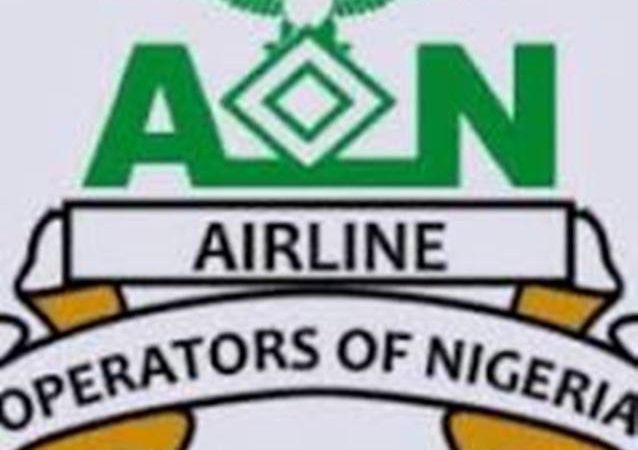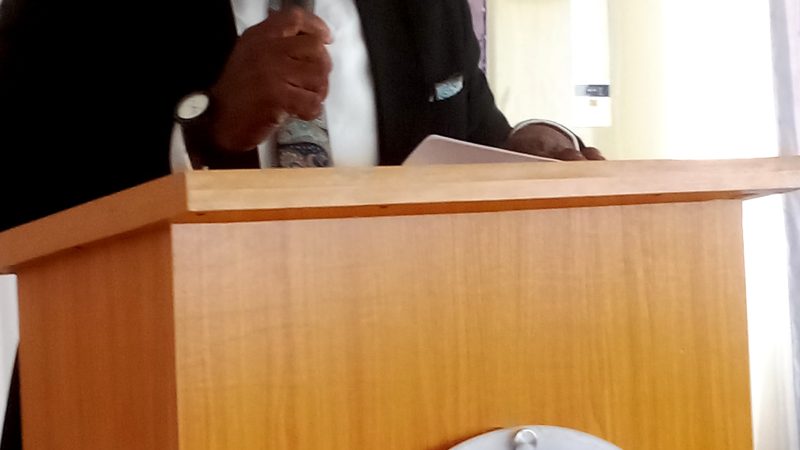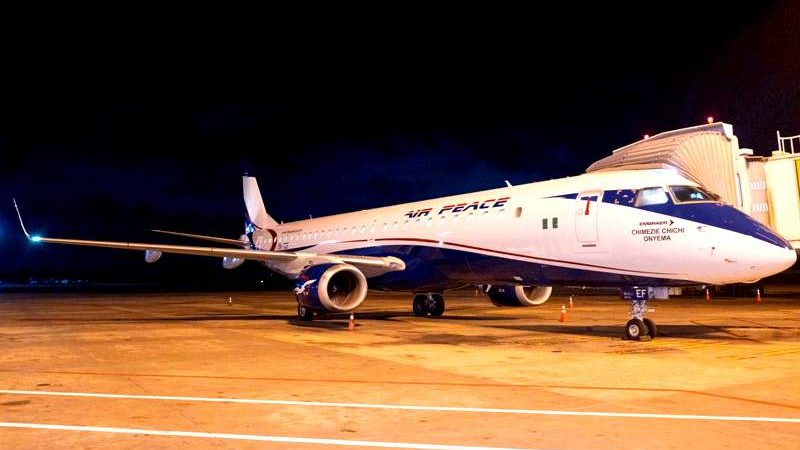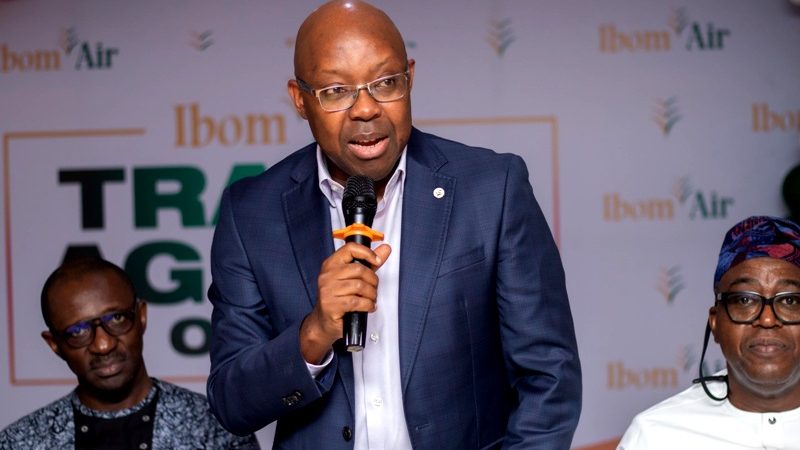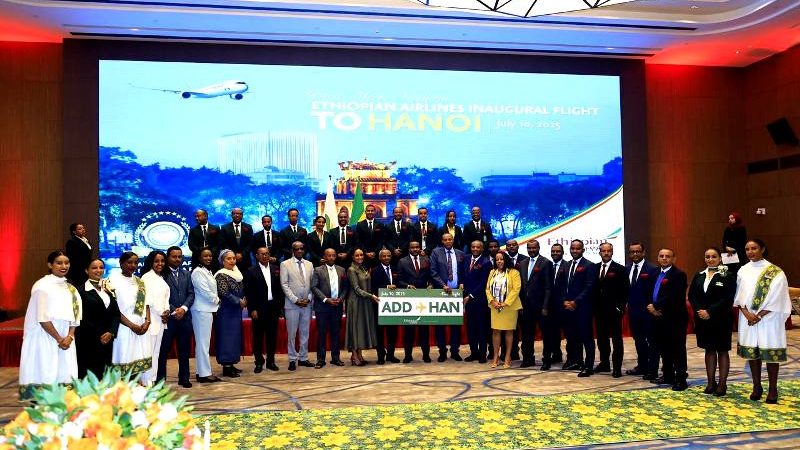Arik’s Business Model Abinitio Was Anathema To Sustainable Growth, Says NUATE
The National Union of Aviation Transport Employees (NUATE) says the business model employed by Arik Air before the receivership “was, abinitio, clearly anathema to sustainable growth.”
A statement signed by Ocheme Aba, General Secretary of NUATE reads: “For a while now, there have been some rather obtrusive narratives about the receivership of Arik Air from some quarters; mainly about the propriety or otherwise of the receivership. Others bother on how well or otherwise the Assets Management Corporation of Nigeria (AMCON) has managed the affairs of Arik Air since the receivership in 2017. In fact, many insinuate that AMCON has mismanaged the Airline, pointing to the depletion of the fleet as evidence. But, it is our view that most, if not all the main commentaries on the Arik Air saga have been based on self-interest, or have at least been one-sided in their narrations.
The National Union of Air Transport Employees (NUATE) has been involved with Arik Air before and after the receivership. That is, NUATE, as representatives of a large portion of the workforce, has directly engaged with the actual owners of the Airline as well as the Receivers Manager. As such the Union is in a good position to know the real story of the Airline, with regard to its conditions pre- and post-receivership. Besides, the workers are true insiders who are genuine witnesses to the entire drama around the Airline’s misfortunes. And their own story needs be told. As their mouthpiece, NUATE feels obligated to tell it.”
NUATE states that “the story of the meteoric rise of Arik Air has already been told, over and over, and does not bear repeating here. What must be said, however, is that its equally meteoric fall was not at all surprising to discerning aviation insiders. This is because the business model employed by the owners was, abinitio, clearly anathema to sustainable growth.
With benefit of hindsight, it is easy to see that the fall was a story foretold by its own methods. Some of the founding miss-steps included, but not limited to absence of proper due diligence, needs assessment, impacts assessment, forecast analysis, and clear business and operational objectives. In short, the Airline was not properly founded.
Based on the above, the owners based their aircraft acquisition on financial capacity rather than actual needs. For example, the owners believed than ‘new’ was better. So NG aircrafts were brought in without thought of the capacity of the market to recoup such huge costs.
Based on the above, the preferred modern fleet was without regard to absence of local expertise which compelled resort to foreign crew and maintenance outfits, in turn without regard to the ability of accruable revenue to match up to foreign exchange requirement, considering high Naira to Dollar rates that grew worse over the years.
Because the owners had easy access to money, they went for ‘starting big’ instead of ‘small’, contrary to industry best practice which recommends ‘start small’. As such the Airline grew too big too fast without the benefit of adequate preparations for the delicate tasks associated with managing large operations. For example, the owners trust themselves into continental and intercontinental operations without adequate preparations for personnel, infrastructure and experience.
Of course, the well-known direct cause of the mishap was financial recklessness and lack of discipline whereby the entirety of revenue accruing to the Airline was seen as personal revenue and acted upon as such. There was bound to be negative repercussions for such profligacy.
But, the above was about the business. What about the condition of the workforce? There was no conditions of service or any HR manual known to the workers beyond the letter of employment. Workers were then treated based on the whims of the employer and some opportune managers. For example, there were stories of workers sacked for failing to greet the Chairman if he happened to pass by, as there were no defined disciplinary procedures. Personnel were hired and fired at the whim of the owners.
There was no defined scheme of service and salary structure, nor recruitment philosophy. As such personnel were hired and allocated salaries at the owners’ whims and discretion leading to widespread animosities and acrimony around remunerations and seniority.
There were no promotions save for a few who were favoured by the owners. Personnel taxes and pensions were being statutorily deducted but not remitted, nor saved. Workers were not allowed to join or participate in trade union activities. So there was denial of freedom of association. As such there was no collective bargaining, despite spirited efforts by three trade unions.
The foregoing was the state of Arik Air during the period preceding the receivership. The workers were in a terrible state of suffering. And the business was headed south. It was not any wonder, therefore, that we arrived at the point of receivership. The only wonder is the thinking among some that there could have been a different outcome, given the prevailing conditions.”
NUATE further states that at receivership, the prevailing state of Arik Air was defined by debt overhang, a dispirited and disillusioned workforce, combined with exasperated trade unions beginning to bare their fangs.
“As at the time of the receivership, Arik Air was indebted to AMCON to the tune ofaboutN180B, while its total assets value was about N80B. This clearly indicated that the Airline’s debt far outweighed its assets. So, Arik was incontestably insolvent or, in more simple terms, bankrupt.
More significantly, all indications were that the owners did not show they were aware of the enormity of the problem, nor did they display any clues as to charting any path out of the quagmire. Rather, industry watchers were dumbfounded to find that the owners, having found themselves in a deep hole, were indeed continuing to dig; discretely seeking more loans and applying resources it did not really have to elephant projects.
This was the state of affairs that AMCON took to the courtroom to seek receivership. Our honest opinion is that the Court had no alternative to granting the prayer of AMCON. And we dare say that these facts are incontestable. It was the case of a company run aground by its owners. And the entity that had the most to lose, in this case AMCON, taking the only lawful option open to it to either mitigate its losses, or salvage what it could out of the loss.
At receivership, AMCON had only two options – to liquidate, or turn the fortunes around with the hope of eventually recouping its debt from the Airline. A purely business decision, let us face it, would have been for AMCON to liquidate and count its losses.
If such decision was taken, the workers would have taken a massive hit. Whereas workers do normally have some protection under a liquidation, the fact of the absence of any defined benefit scheme due to there being no Conditions of service for them would have meant that the workers would have been left empty handed with all jobs gone. It was therefore, a massive sigh of relief when AMCON announced the second option of turn-around.
We do know, of course, that AMCON, being a federal Government agency was simply pressured by Government not to liquidate because of two reasons. One, Arik was the biggest airline at the time, and its unceremonious exit would have caused serious crisis for the industry. And two, liquidation would have meant throwing about two thousand employees into the labour market. This was quite a problem for the government as unemployment was, as it still is, a big social-economic issue.”
NUATE equally stated that with the present state of affairs in Arik after receivership, it may be tempting to compare and contrast the period of receivership against the period before it whereas parameters are too dissimilar for an honest analysis. Highlighting the current state of affairs in the airline, NUATE said: “No new investments means that the business is living from hand to mouth. In such situation, the business cannot but dwindle. Despite the above, the airline is presently paying all its bills promptly – to FAAN, NAMA, NCAA, fuel vendors, caterers, and other contractors. That means, no new debt has been incurred by the Receivers Manager. Staff salaries are being paid promptly, and staff deductions of taxes and pensions are being remitted promptly.
Staff promotions are now carried out periodically and salaries have been upgraded at least twice, not minding that rates are still low. Workers are allowed to join unions with three unions, including ours, operating freely, despite hiccups. In fact, the workers now have negotiated Conditions of Service which is in its first circle of review presently.
Against the background of the gloom and the doom that was sure to come had receivership not occurred, we consider that the above gains are very significant. And in our humble opinion, these gains are worth every effort on our part to protect.”
Suggesting the possible steps that should be taken to resolve the conflict, NUATE said the gains highlighted “confirm that there is still much life in Arik Air. As industry insiders we are assured that a simple determination among stakeholders will be enough to turn the fortunes of the Airline around. May we, in that regard suggest the following:
Cooperation: We consider it extremely vital for the Owners of Arik and the Receivers Manager (AMCON) to accept the need to cooperate with each other. The two entities (aside the workers) have the most to Gain, or lose, from the state of the Airline. A recognition of this fact will alter the present state of adversity/animosity between the two gladiators which has been anything but helpful. If the two parties agree to work together, and receive the understanding of the workforce, it is our concrete belief that a pathway out of the doldrums will be not too difficult to chart.
Financial, not Legal: We dare say that the matter we are dealing with at this stage is not a legal matter, but a purely financial one. Therefore, its resolution can only be through financial engineering, and not legal fireworks. In this regard, it is our regarded view that what the owners of the Airline need more is a team of financial experts, rather than a legal team. For, at the end of the day, this is about defraying debts. Financial experts should be able to work out a viable debt scheduling, complete with proper investment plan capable of backing the debt payment plan. The onus of this rests more with the owners. And we have cause to believe that AMCON should be willing to listen to a good offer in this respect.
Investment is Inevitable: It is absolutely clear that Arik Air cannot move one inch out of the woods without some reasonable investment, one way or another. In this regard there are two options.
There presently exists a $34M down payment to Boeing for purchase of aircraft which has been lying fallow since before the receivership. By cooperation between AMCOM and the owners, this money can be released as part of the debt to AMCON. The workers inform us that this amount can conveniently bring back five Arik aircraft that are presently out of service. This action alone will return the Airline to profitable mode by which its indebtedness can continue to journey up north.
AMCON should relax its current stance of nil investment in the Airline. This posture is counterproductive to the Corporation’s chosen path of turning the Airline around. It does not make sense to us that after all the effort that has stabilized the Airline, then the effort is made to waste by a change towards liquidation. Our honest advice is to ask AMCON to put behind the hurtful acts of the past administration which denied it the benefit of setting up the new airline of NG Eagle on the altar of personal agenda. We are convinced that a new reinvigorated attitude towards the profitability of Arik Air by AMCON will serve the Corporation in good stead, and will serve the larger interest of aviation, including the workforce.”
The union says these suggestions will best serve the purpose of a true turnaround of Arik which will be in the interest of all.
“We consider that ultimately, the incoming Minister of Aviation will have to give due consideration with view of fostering the needed synergy among all stakeholders to assure that the foregoing objectives are positively delivered in the interest of the owners, the Receivers Manager, the workers, other creditors of Arik Air, and the aviation industry at large. This is necessarily the duty of government.
It is not clear what the mind of AMCON is reading right now. But, it is clear to us what the mind of the owners of Arik is reading; to get back their company. The purpose of this intervention is to assist to unite the minds of the owners with the Receivers in the direction that can, through practical deliverables, arrive at the point where a healthy Arik Air can return to normalcy at the peak of the Nigerian airline industry where it rightly belongs.
We sincerely appeal to all parties to agree to a truce and start now to work in alliance to assure the health of the Airline. A healthy Arik Air should be the objective, and in fact the interest, of all. Anything else will do no one any good,” states NUATE.



